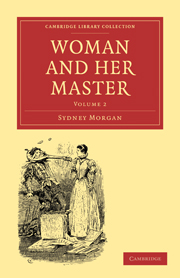Summary
Tiberius having oppressed the world for twenty-two years, was murdered in the midst of his disgusting vices, by the favourite he had chosen for his successor,—“a serpent,” (as he himself said,) “whom he had reared for the Roman people, a Phaeton for the world!” The people, when they learned his decease, became frantic with joy; and heedless of the future, in the joy of a momentary liberation, gave free vent to their feelings: but the senate, whose slavish habits the tyrant's death could not disturb, preserved unbroken their hypocrisy; and gave to him who was unworthy to be accounted a man, a place among the gods.
Among the untranscribable vices and crimes of the Emperor Caligula, the most fatal, if not the most extravagant, were directed against the morals and the happiness of woman; and from the attempts of his brute passions and tyrannical power, even the females of his own family were not exempted.
The unworthy son of Germanicus, (so early torn from the arms of his illustrious mother, to be reared in the vicious court of his father's murderer, among slaves and parasites, and the enemies of his house,) started, like his predecessor, with qualities which recalled his noble origin, and seemed to justify the hopes held out by a precocious genius, and promised virtues.
- Type
- Chapter
- Information
- Woman and her Master , pp. 89 - 139Publisher: Cambridge University PressPrint publication year: 2010First published in: 1840

